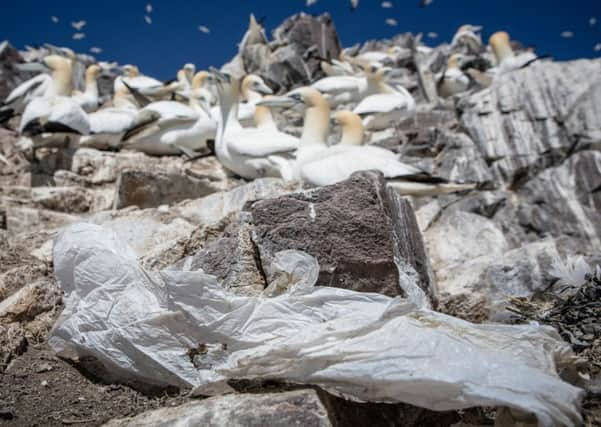Plastic trash tops 6bn tonnes '“ and rising


Humans have created more than eight billion tonnes of plastics in the past 65 years, and most of it still exists in rubbish tips, in the sea and strewn about the landscape, according to new international research.
The study, by scientists in the US, is the first global analysis of the production, use and fate of all plastics ever made.
Advertisement
Hide AdAdvertisement
Hide AdIts findings show 8.3 billion tonnes of plastics have been manufactured since large-scale production began in the early 1950s. It also reveals that 6.3 billion tonnes of the synthetic materials have already become waste.
Of this total only nine per cent has been recycled and 12 per cent incinerated, while a whopping 79 per cent has accumulated in landfill sites and the natural environment.
Plastics are notoriously durable, taking centuries to decompose.
The researchers, from the University of Georgia (UGA), the University of California, Santa Barbara and Sea Education Association, are warning the figure will rocket if current trends continue.
They say the world could see a plastic waste mountain weighing 12 billion tonnes – the same as 35,000 Empire State Buildings – by 2050.
“Most plastics don’t biodegrade in any meaningful sense, so the plastic waste humans have generated could be with us for hundreds or even thousands of years,” said Jenna Jambeck, associate professor of engineering at UGA.
“Our estimates underscore the need to think critically about the materials we use and our waste-management practices.”
Previous research suggests around eight million tonnes of plastic rubbish enters the world’s oceans annually, causing the death of more than a million seabirds and 100,000 marine mammals every year.
Advertisement
Hide AdAdvertisement
Hide AdRecent Scottish studies revealed that as many as nine out of ten fulmars found dead in the North Sea had eaten plastic, while nearly as many prawns sampled in the Clyde had plastic in their guts.
And the pace of production shows no signs of slowing.
The US researchers found that around half of all the plastic fabricated between 1950 and 2015 was produced in just the last 13 years.
Environmentalists say the latest findings highlight the need for urgent action to reduce the quantity of plastic that is discarded.
“The amount of plastic we use and throw away every day is staggering,” said Laura Foster, head of pollution at the Marine Conservation Society.
“This study shows where this ends up – largely in landfill – how little is recycled, and how it is projected to increase.
“Given that it is already estimated that an equivalent of one truckload of plastic litter enters the ocean every minute, any further increase is extremely worrying.”
She insists everyone can cut their plastic footprint with some simple changes, such as switching to reusable drinks containers.
She added: “We know that incentives such as bottle deposit return systems significantly reduce the amount of plastic ending up in landfill and beaches.
“Ultimately we want to prevent plastic entering our oceans, with plastic recognised as a finite resource and products designed to be easily recyclable.”